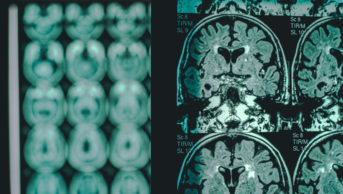
Shutterstock
Clinical trials involving principal investigators with financial ties to the pharmaceutical industry are more likely to report positive results, research has revealed.
The researchers, led by Salomeh Keyhani from the University of California, San Francisco, say their findings — which held even after accounting for the influence of study sponsorship — suggest that financial ties could be leading to bias in the clinical evidence base.
Reporting in The BMJ
[1]
(online, 17 January 2017), the team says: “Given the importance of industry and academic collaboration in advancing the development of new treatments, more thought needs to be given to the roles that investigators, policy makers, and journal editors can play in ensuring the credibility of the evidence base.”
The researchers looked at data from 195 randomised controlled clinical trials published in 2013 involving a total of 397 principal investigators. Any industry financial ties were derived from those declared in disclosure sections in the published papers, as well as from external sources, such as Medline, Google, the ProPublica Dollars for Doctors database and US Patent Office records.
The team found that 231 (58%) principal investigators had financial ties to commercial companies, the most common tie being as an adviser or consultant. Other ties included speakers’ fees, honorariums, travel fees and stock ownership.
Principal investigators had financial ties in 103 (76%) of the 136 studies with positive outcomes, compared with 29 (49%) of the 59 studies with negative outcomes. In further analyses that adjusted for any funding sources, the researchers calculated that a financial tie was associated with a 3.57 greater odds of a positive trial outcome.
Commenting on the results, Adam Dunn from the Centre for Health Informatics at the Australian Institute of Health Innovation in Sydney, Australia, says that unfavourable trial results often remain unpublished, but when results are published, there are a number of ways for investigator bias to seep into them.
“The less favourable outcomes can be left out of publications. Often the conclusions simply don’t match the results, or the authors generalise results to include broader populations than were tested,” he says. “The other way that investigators can influence the conclusion of a trial is in the design of the trial. Differences in the selection of populations, outcomes, or the length of follow-up can all change the results.”
He adds: “A cynical observer might say that if a pharmaceutical company wanted to have greater control over the evidence for the drugs they produce, then it may be cost effective to increase funding to individual investigators undertaking trials in an area as well as funding the research directly.”
Virginia Barbour, chair of the Committee on Publication Ethics, a forum for editors and publishers of peer-reviewed journals on publication ethics, says that the study findings are “concerning”, adding that while declarations of conflicts of interest are important, the research demonstrates that they are not enough.
“Declaration of [conflicts of interest] from investigators does not seem to be sufficient to reduce the association we know exists between industry funding overall and positive results,” she says. “Journals can only do so much — the issue lies much earlier in the running of trials. This result should prompt careful examination of trial oversight.”
Dunn adds that the only way to truly fix the problems of bias within clinical trials would be to take multiple steps simultaneously, such as improving the disclosure of competing interests, placing more pressure on journals to mandate prospective registration of trials and requiring public reporting of structured clinical trial data.
Jacintha Sivarajah, head of medical affairs at the Association of the British Pharmaceutical Industry, a trade body for drug companies, points out that 43% of principal investigators in the study were based in the United States, and therefore the results may not reflect the situation in the UK.
“The UK clinical trials environment works differently than in the [United States]. In the UK, funding to run clinical studies is made available to organisations, including NHS Trusts and universities, rather than individuals.”
References
[1] Ahn R, Woodbridge A, Abraham A et al. Financial ties of principal investigators and randomized controlled trial outcomes: cross sectional study. BMJ 2017;356:i6770. doi: 10.1136/bmj.i6770


